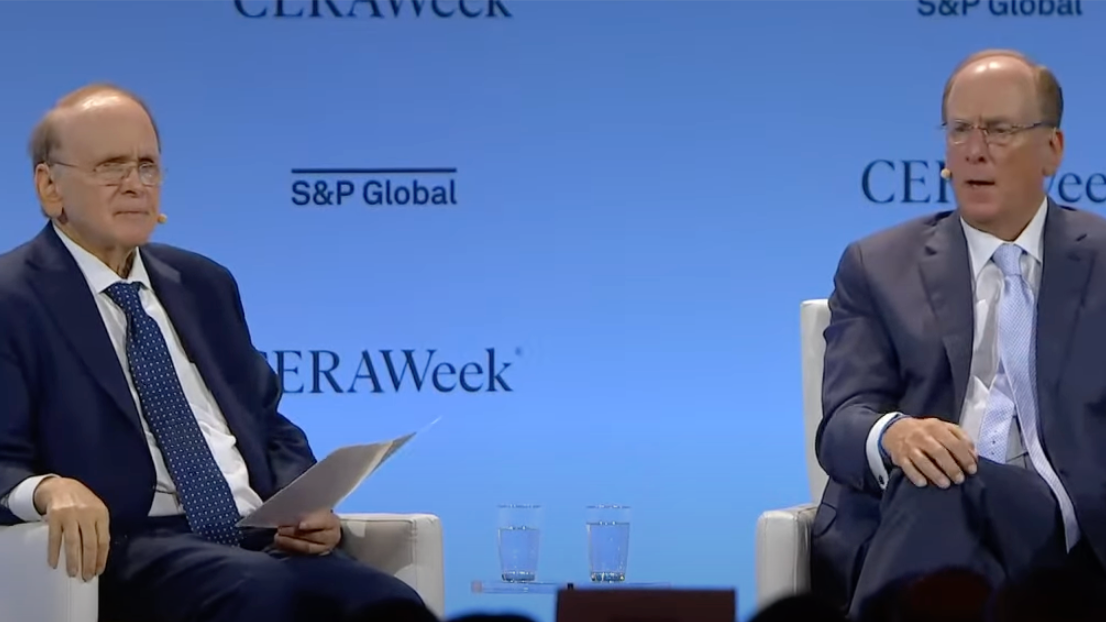Larry Fink’s natural gas is striking
In a stunning reversal on climate change, Larry Fink, the CEO of BlackRock, has emerged as a champion of natural gas, a move that starkly contrasts with his earlier warnings about the financial risks of climate change.
This shift is particularly noteworthy given BlackRock’s expanding investments in the natural gas sector, including its acquisition of Global Infrastructure Partners (GIP) and the development of a massive LNG terminal in Brownsville, Texas. As Fink now advocates for “energy addition” over “energy transition,” it raises questions about whether his earlier commitment to addressing climate change and this new direction are both just opportunistic adjustments to the political winds of the moment. 
Construction begins at Rio Grande LNG export in Texas. Source: Next Decade
BlackRock’s foray into the natural gas industry is not a minor investment. The acquisition of GIP, which has a portfolio focused on natural gas and coal, marks a substantial expansion of BlackRock’s energy holdings. It is the largest acquisition Fink has made since he purchased the iShares ETF business from Barclays over a decade ago.
In addition to the Brownsville LNG Port, BlackRoxks’s natural gas portfolio now includes a 40% stake in TC Energy’s Columbia Gas Transmission System, spanning thousands of miles across the US, and a 35% stake in a joint venture with Hess Midstream Partners in North Dakota. The recently announced plan to purchase ports on either end of the Panama Canal further solidifies BlackRock’s position in the LNG export market as the bulk of American-produced LNG passes through the port to Asia.

Fink’s growing methane gas empire. Source: Mercellus drilling news
So it should also surprise no one that last January, Blackrock announced it would leave the Net Zero Asset Managers Initiative less than four years after the alliance was formed to push for net-zero greenhouse gas emissions by 2050.
Energy transition is out. Energy addition is in.
Fink’s shift in rhetoric is striking. In 2021, he emphasized the importance of decarbonization strategies for businesses. However, at a recent energy conference in Houston, Fink aligned himself with the dean of fossil fuel experts Daniel Yergin’s views, advocating abandoning “energy transition” for “energy addition” instead.
Sharing a stage with Yergin at the Houston conference, Fink heartily endorsed the themes of Yergin’s latest essay in Foreign Affairs titled “The Troubled Energy Transition,” where Yergin argues that the idea that the global economy can transition to renewable power was a product of flawed COVID-19 pandemic thinking and is not a realistic pathway. Fink agreed. “You wrote a really good piece in Foreign Affairs,” he laughed when Yergin asked him about his views on energy. “I could just copy what you said.”
Bulked up on natural gas investments, Fink today now sounds more like a born-again fossil fuel lover than climate champion. His assertion that methane gas will play a significant role in the US for decades, coupled with his emphasis on the abundance of fossil fuels in America, underscores this perception. “Because of the blessings of geology,” he said, “America will have all the dispatchable power [euphemism for fossil fuels] we need,” adding that methane gas “is going to play a major role in the US for 50-plus years.”
This shift is more than a strategic business move. By aligning with figures like Energy Secretary Chris Wright, who dismisses the potential of wind, solar, and batteries to replace natural gas, Fink is seeking to rehabilitate his image in conservative circles further.
What about solar?
Veteran energy analyst Kingsmill Bond critiques Fink and Yergin for failing to grasp the impact of the global momentum toward renewable energy. Solar power, in particular, is the fastest-growing form of energy worldwide and in many places, is already the cheapest form. This trend suggests that the future of energy may not be as reliant on fossil fuels as Fink and his allies predict. Instead, it may be driven by technological advancements and economic realities that favor cleaner energy sources.

And what about soaring climate loss and damages?
Fink’s transformation into a natural gas champion raises more questions than answers. Will his bet on fossil fuels prove as fleeting as his earlier views on climate change? I guess it depends on what his next big investment will be.
However, one thing is clear: Fink’s focus on natural gas expansion ignores the staggering rise in climate-related losses and damages. Last year, the United States experienced 27 billion-dollar weather and climate disasters, resulting in at least 568 fatalities and a total economic cost of at least $182.7 billion. Last year was also the hottest on record and ten of the past decade’s years ranked among the hottest ever. When deciding to invest in natural gas is Fink putting future broader economic losses like this into his investment calculation?
This stark reality underscores Fink’s earlier warnings that “climate risk is financial risk,” a message that now seems lost in his advocacy for fossil fuels.
Featured image source: CNCBC


